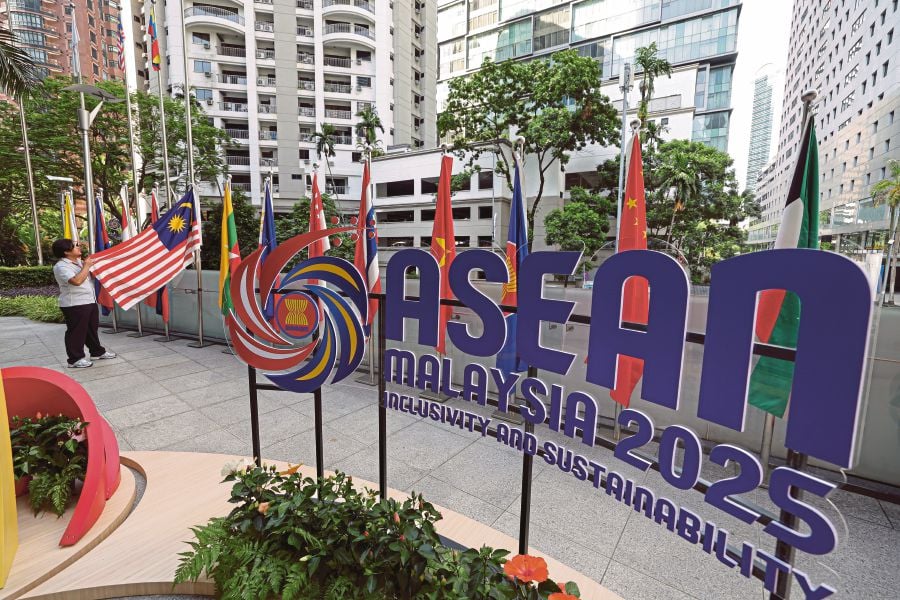Thomas Daniel was quoted in New Straits Times, 26 May 2025

KUALA LUMPUR: Malaysia’s push for stronger regional action against Myanmar’s junta marks a pivotal moment in Asean’s evolution.
It may also signal a broader shift in regional policy, said experts.
As Southeast Asia continues to grapple with the Myanmar crisis, Malaysia has emerged as a vocal advocate for change, urging Asean to reconsider its principle of non-interference .
This stand, while potentially divisive, reflects growing frustration over the bloc’s perceived inaction and inability to influence the junta, which seized power more than four years ago.
Universiti Utara Malaysia’s School of International Studies (Academic and International) deputy dean Dr Shazwanis Shukri said Malaysia is seeking to address the crisis more effectively with other members.
She said while non-interference has underpinned Asean’s cohesion, it is increasingly seen as a barrier to addressing regional crises, particularly in Myanmar.
She said Prime Minister Datuk Seri Anwar Ibrahim’s diplomatic outreach to Myanmar’s military leadership, aimed at securing a ceasefire, exemplified this new approach.
“Malaysia believes that the military’s suppression of democratic forces and humanitarian atrocities demands a departure from business-as-usual diplomacy,” she said.
However, Shazwanis added, efforts to push Asean to a more confrontational stand face challenges.
She said Asean’s consensus-based decision-making often leads to inaction, as seen by the ineffectiveness of the five-point consensus (5PC), undermined by the junta’s non-compliance.
“Malaysia’s call to reevaluate Asean’s norms, including the potential suspension of Myanmar’s participation, reflects a frustration with the bloc’s inability to enforce its principles.
“This approach marks a shift and has found cautious allies in Indonesia, the Philippines and Singapore, which have all expressed concern about the junta’s defiance of the 5PC.”
She said resistance remained from Thailand, Cambodia, Laos and Vietnam, which are less inclined to challenge a fellow government’s sovereignty.
Given Asean’s decision-making approach, she said, even one dissenting member can block collective action, making reforms to the non-interference principle unlikely in the near future.
“That said, Malaysia’s stand does not necessarily equate to diplomatic isolation.
“If pursued strategically, with coalition-building and measured rhetoric, Malaysia can help shift Asean towards a more flexible interpretation of non-interference, one that allows principled engagement in response to human rights violations.”
Institute of Strategic and International Studies foreign policy and security studies director Thomas Daniel said no Asean member is likely to challenge the non-interference principle.
He said Malaysia has adopted a more engaged approach over the past two years, interacting with stakeholders in Myanmar while maintaining a stand of excluding the junta until progress is made on the 5PC.
“What the Myanmar crisis has shown us though is that non-interference should not mean non-indifference, especially when it affects neighbouring countries.”
He said basing foreign policy purely on moral grounds is easier said than done.
He said that mere moralising without realistic assessment of the means for deescalation, peace, accountability and reconciliation does not help anyone.
Nusantara Academy for Strategic Research senior fellow Dr Azmi Hassan said Malaysia’s vocal and assertive leadership as Asean chair is driving renewed efforts to address the crisis.
By engaging with the junta and pushing for adherence to the 5PC, he said, Malaysia aims to keep Myanmar’s return to democracy at the forefront of Asean’s agenda.
“Malaysia has been vocal and assertive in urging Myanmar towards democracy.
“This makes it arguably the first to break Asean’s non-interference principle by intervening in another member’s affairs,” he said.
Azmi said the stand, supported by collaboration with past and future Asean chairs, Laos and the Philippines, signals a shift towards greater accountability and dialogue to resolve the crisis.
He said the two meetings on Myanmar at the Asean Summit demonstrated Malaysia’s determination to keep the issue high on the bloc’s agenda, urging member states to maintain pressure on Myanmar to comply with the 5PC.
As the junta tightens its grip with little regional pushback, Shazwanis warns of long-term consequences for Malaysia and Asean if democratic norms continue to erode unchecked.
“For Malaysia, continued inaction could tarnish its reputation as a proponent of human rights and democratic values.
“The association with a bloc perceived as ineffective may diminish Malaysia’s influence in regional and international forums.
As for Asean, Shazwanis said the erosion of democratic norms undermines its foundational principles and risks transforming the organisation into a forum for authoritarian regimes.
By championing reform in Asean, she said, Malaysia positions itself as a principled leader on human rights and democracy, but it must do so without appearing unilateral or confrontational to remain effective.
This article first published in New Straits Times, 26 May 2025





